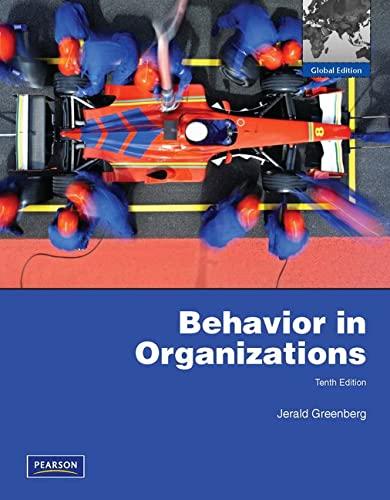Google, the immensely popular Web search engine, has been touted as the closest thing the Web has
Question:
Google, the immensely popular Web search engine, has been touted as “the closest thing the Web has to an ultimate answer machine.” Although this is debatable, of course, it is far more difficult to deny that the company is, in fact, the closest thing we have to an ultimate example of business success. Founded by two computer science graduate students at Stanford University in the late 1990s, Larry Page and Sergy Brin, Google has grown astronomically. In late 1998, the search engine had 10,000 queries per day, a figure that grew to 300 million by 2009. More than just a search engine, Google now has 12 product lines, including its highly regarded Android cell phone. On the heels of these accomplishments, financial success likewise has been impressive. Only four months after the initial public offering of Google stock in August 2004, its price more than doubled and has risen much higher ever since.
Although Google is in the technology business, its founders acknowledge that the company’s greatest challenges lie more with people than computers. At first, Page and Brin worked with just a handful of employees out of a converted garage, but today the company has some 10,000 employees in its sprawling headquarters, known as the “Googleplex,” in Mountain View, California. With such rapid growth, how can Page and Brin ensure that their many new employees share their passion for innovation and work hard to achieve it? Brin explains his strategy quite simply: “To have a good lifestyle, we have to have a good lifestyle at work.”
Just about all the people who work at Google, from the most advanced computer engineers to the lowest level employees, are hand selected (or, at least, approved)
by Page and Brin. They look for people who are inspired not by money, but by love of the work they do. After all, they are expected to work long hours and to achieve unparalleled levels of excellence, to come up with “the next big thing.” To make this happen, they go out of their way to make Google a great place to work. As Brin put it,
“Work should be challenging, and the challenge should be fun.”
With this in mind, Page and Brin have taken strides to ensure that there’s a comfortable and friendly atmosphere at Google. For example, there is no dress code; you dress however you wish to be comfortable (as stated in the company’s philosophy, “You can be serious without a suit”).
People even can bring their dogs to work, keeping them company throughout the day. To help everyone stay fit and to build a spirit of teamwork, there’s also a very strong spirit of play at Google; at noon each day there’s a volleyball game outside.
Google puts users first when it comes to online service, and it puts employees first when it comes to daily working life. Employees are treated very well. A fantastic on-site cafeteria serves gourmet meals of every kind, catering to a variety of dietary needs and preferences—
all absolutely free of charge. According to CEO Eric E.
Schmidt, this is just good business because it keeps people at their desks instead of leaving the building to eat.
The company also invests in its employees in another interesting way. Every year, the company takes all its employees on an all-expenses-paid ski trip. Again, this is seen as good for the business because it promotes the spirit of càmàràderie that’s necessary in their work environment, in which the sharing of ideas is critical.
This is not to say that Google is lavish or wasteful.
Although Page and Brin each made $6 billion when the company went public, and 1,000 employees also became millionaires, it is not money that keeps people going at Google.
Page and Brin still share a small office and live modestly, as do most of their employees. Although they have the means to be living extremely well (and surely will do so someday), right now, the thing that keeps everyone going at Google is their zeal to use computer technology to change the world. It’s all about innovation, and not getting rich quick.
Questions for Discussion
1. What does Google do to motivate its employees?
2. Based on the material in this chapter, what recommendations would you make to Google about additional things it could do to enhance motivation?
3. What particular problems or limitations do you envision in the recommendations you offered in answering the previous question? For example, under what conditions are they likely to be effective? Would they work for everyone?
Step by Step Answer:






